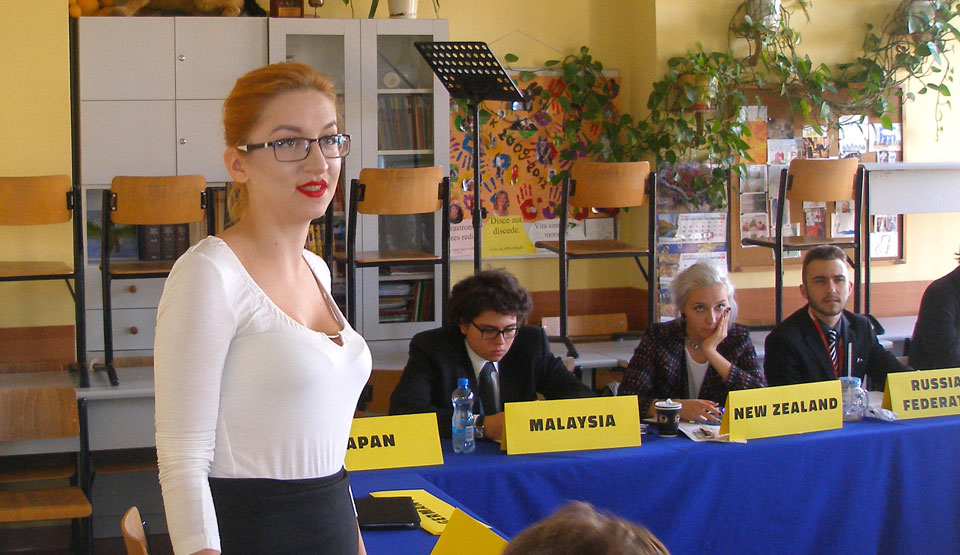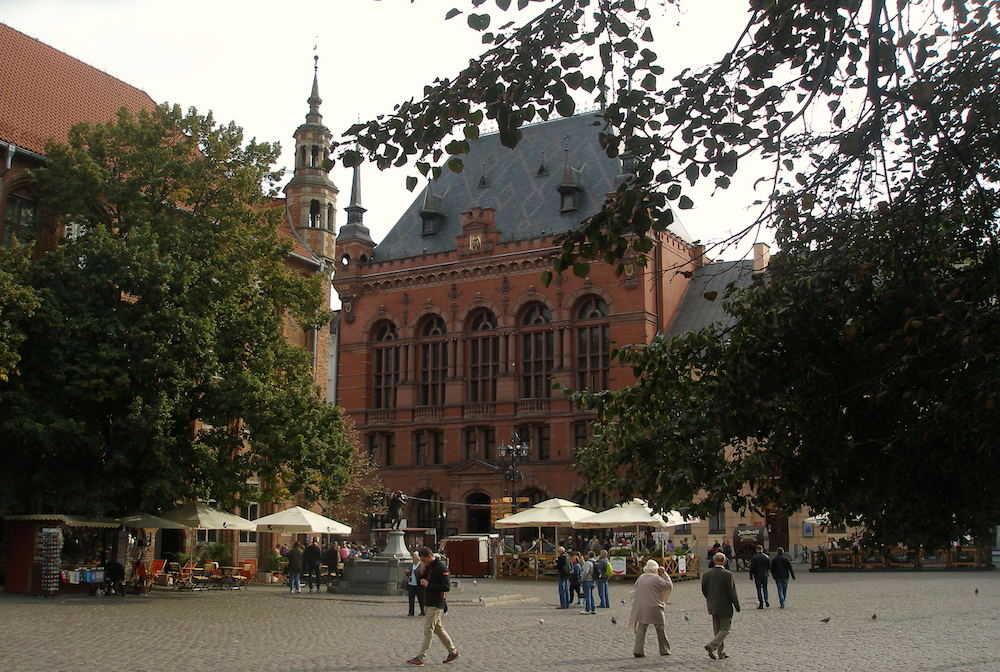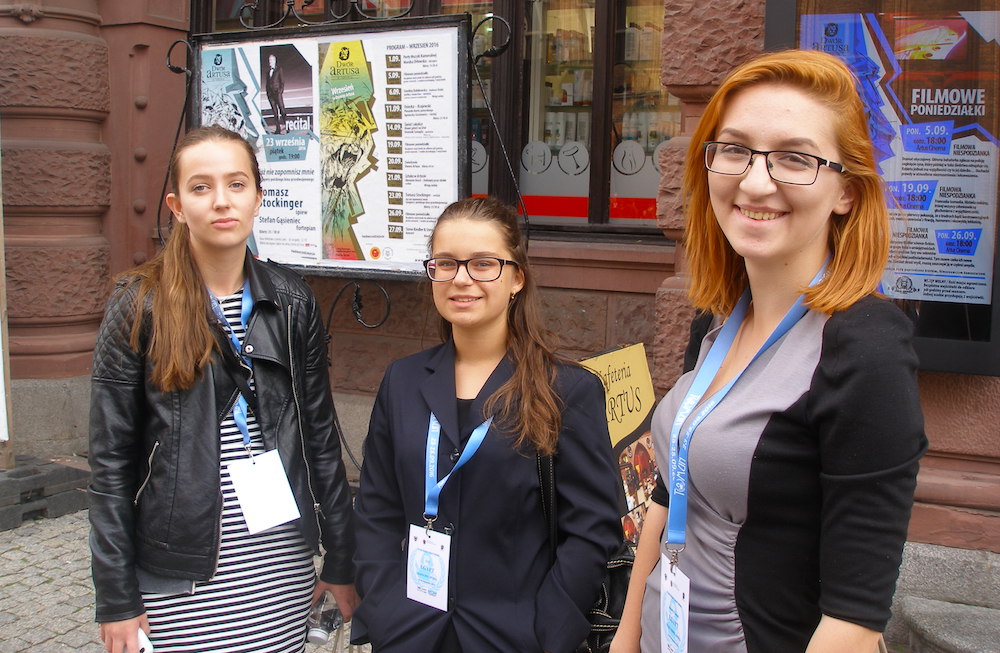Four students of EGMT – Daniel Dulla, Ivana Hrušková, Ivana Krpelanová and Alena Buľovská – represented our school in the roles of delegates of the Democratic Republic of Korea and Egypt at the second edition of Torún Model United Nations (TOMUN) in Torún, Poland (23-25 September).
Unlike last year, the journey from Martin to Torún went smoothly. We took trains all the way and had to change twice (in Ostrava and Katowice), but we arrived on time and in good health and spirits.
The conference was an improvement in quality on last year’s first ever edition. There were six foreign schools represented, one each from Luxembourg, Germany, Latvia and Hungary and two from Slovakia; the bilingual school of Žilina and ourselves. Still, as the only foreign school to attend twice, we were honoured guests. There were also Polish schools from Torún and its surrounding areas, and one from further away, in Gliwice.
Daniel and Ivana Hrušková represented North Korea, Daniel on the Humanitarian, Social and Cultural Committee (GA3) and Ivana on the Human Rights Council. Ivana Krpelanová and Alena both represented Egypt, Ivana as its Security Council delegate and Alena on the Special Political and Decolonisation Committee (GA4). All four did a fine job. Daniel was finally awarded the title of ‘most active delegate’ on his committee, while Ivana Krpelanová now has great experience of the Security Council and made an excellent contribution to this conference. Ivana Hrušková and Alena were both attending an MUN conference for the first time, which is never easy, but both were active and engaged throughout.
As always at an MUN, the issues discussed reflected the world today, with the Security Council debating the problems in Ukraine and those posed by ISIS and Jihadist terrorists. The Human Rights Council was concerned with aspects of the refugee crisis, including the situation of child refugees.
For all the students, this conference was an opportunity to make new friends in the true sense, as well as just political alliances. For those who participated last year, it was also a chance to renew old friendships. And this is ultimately the point of MUN conferences, because they are about friendships. This is true of the event itself, which is about collaboration rather than competitiveness. You are not trying to defeat someone, as you are in a debate, you are trying to find common ground. On the other hand, you do have to stand up for your country’s interests. That isn’t easy when your country is North Korea, but then sometimes it helps to have to look at the world from another’s perspective.
All the communication was in English, even though Slovaks and Poles can (just about) communicate through their native languages. Perhaps an English teacher shouldn’t say such a thing but I do believe that students learn more English through an event like this than in the equivalent time with a text-book. They also have to deal with extremely formal language during the conference, referring to themselves as ‛the delegate of (Egypt)’ rather than ‛I’. Even a simple request, such as a wish to open a window, has to be introduced as a ‛point of personal privilege’. Since MUN topics encompass most educational disciplines – the humanities, the sciences, economics, and technology – they also further understanding of other school subjects.
It is an immensely valuable activity, one I believe helps the educational process in all sorts of ways. Hopefully, we can engage more students in it.
More information on Tomun can be found at www.tomun.eu
James Baxter
Lutheran Academy english teacher







